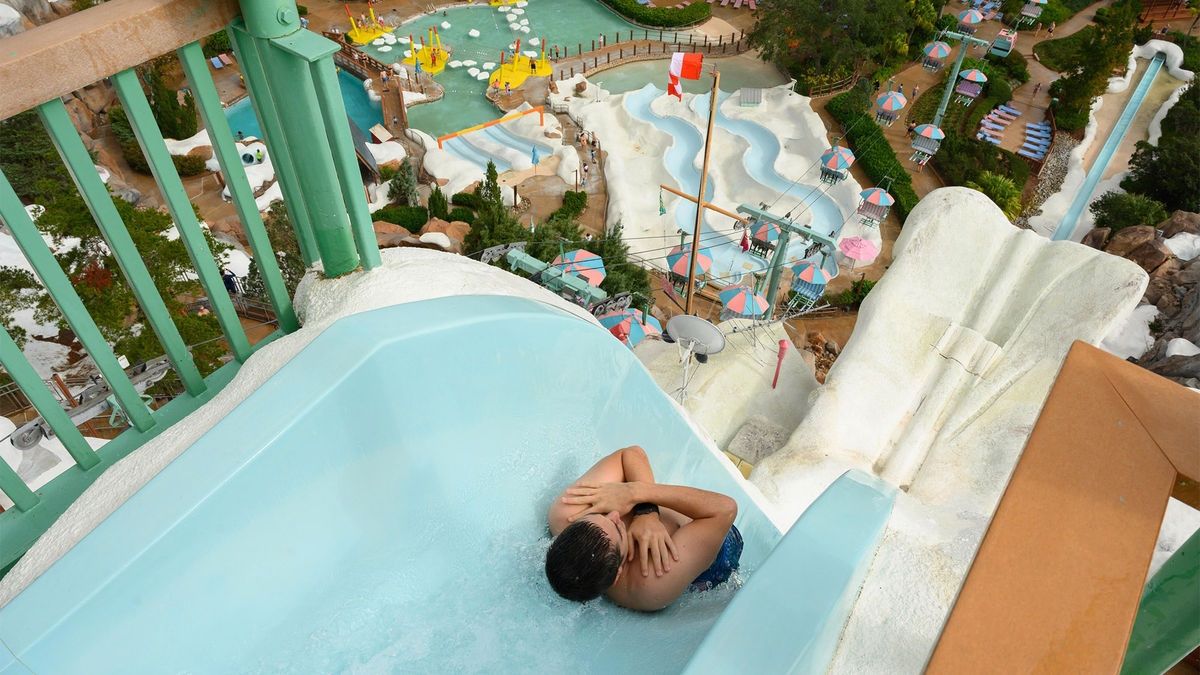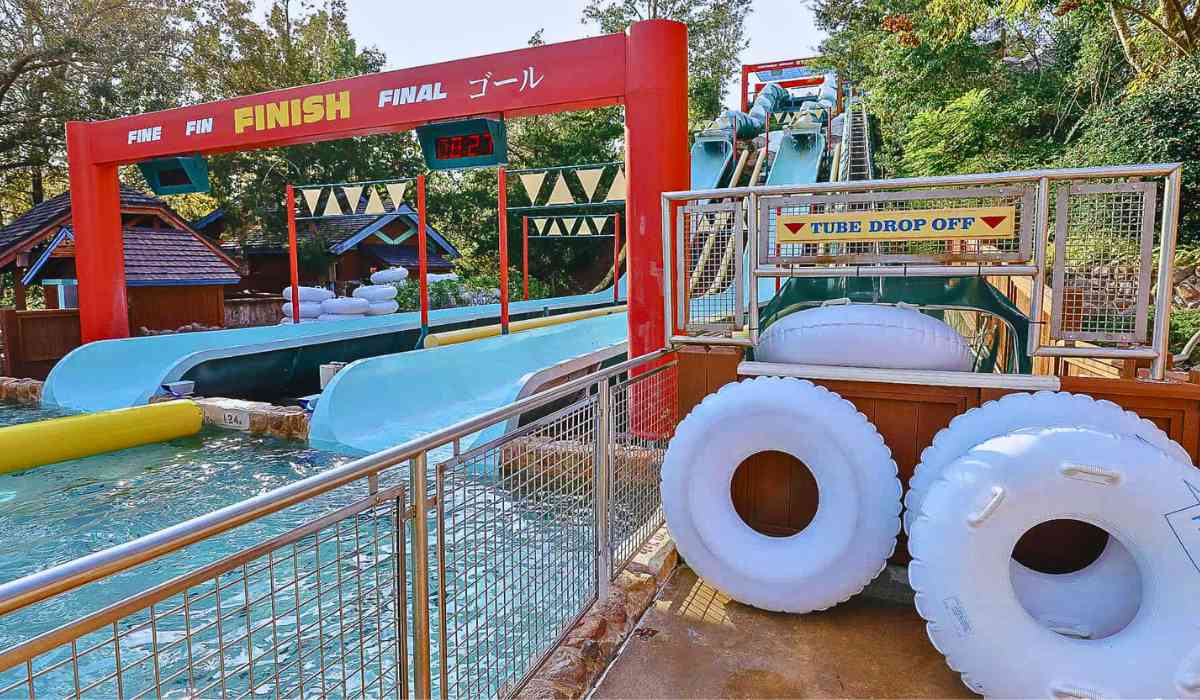When most people think of waterslides, they imagine carefree laughter, the rush of cool water, and the occasional awkward moment when your swimsuit decides to go on its own adventure. For Eugene Strickland, however, a trip down Disney’s Blizzard Beach “Downhill Double Dipper” in July 2021 turned out to be less “happy ever after” and more “lawsuit ever after.”

Strickland, clocking in at a robust 151 kg (that’s 334 pounds for those who prefer their weight in cheeseburger units), was 13 kg—or about 34 pounds—over the ride’s official weight limit. But who’s counting when there’s fun to be had? Certainly not Strickland, who hopped into the inner tube with the enthusiasm of a kid at a birthday party. Little did he know, this ride would be less about splashing into the pool and more about making a splash in the legal system.
As Strickland hurtled down the slide—which, according to Disney’s own marketing, boasts “exhilarating speeds” and a “plunge 50 feet downhill”—he discovered that sometimes, “exhilarating” can also mean “catastrophic”. The lawsuit claims that the combination of speed and slide design conspired to send both Strickland and his inner tube on separate journeys. The tube went one way, and Strickland, briefly airborne, went another—landing with all the grace of a sack of potatoes on the hard plastic surface below.
The result? According to his legal team, Strickland suffered “permanent catastrophic injuries,” which is legalese for “a really, really bad day at the waterpark”. The lawsuit lists everything from pain and disability to scarring, disfigurement, mental anguish, and a newfound inability to enjoy life’s simple pleasures—like watching Disney movies without wincing.
Strickland’s lawyers are now on a quest for justice, armed with a lawsuit that accuses Disney of negligence for allegedly failing to maintain safe premises and ignoring a “safety hazard” or “concealed trap”. They argue that Disney had a duty to warn visitors about dangerous conditions and to fix any issues with the slide. The lawsuit is, however, conspicuously silent on whether Strickland was aware of the weight limit before his fateful plunge—leaving us to wonder if he missed the sign, was blinded by the Florida sun, or just really, really wanted to ride that slide.

Meanwhile, Disney—no stranger to legal drama—has faced splashy lawsuits before. In 2023, a man sued Disney after his wife suffered a fatal allergic reaction to a meal. In that case, Disney’s lawyers argued that the plaintiff had waived his rights by agreeing to Disney+ terms years earlier—a plot twist even the most imaginative Disney screenwriter would be proud of. Now, with Strickland’s case, Disney finds itself once again in the legal deep end.
As Strickland seeks his Rs 42 lakh (about $50,000) payout, one thing is clear: when it comes to waterslides and lawsuits, sometimes the real thrill is in the courtroom, not the park. The case is set to go to jury trial in May 2027, so there’s plenty of time for popcorn, speculation, and maybe even a few more splashy headlines.
For now, the lesson for all would-be waterpark warriors is simple: if you’re planning a trip to a waterpark, double-check the weight limit. Because while a little extra weight might not stop you from having fun, it could land you in a courtroom instead of the pool. And trust us, legal briefs are a lot less fun than bathing suits.
As for Strickland, he’s not just seeking compensation—he’s seeking justice, closure, and maybe a little peace of mind. After all, it’s hard to enjoy “It’s a Small World” when your last Disney experience left you with more than just a catchy tune in your head.
So here’s to Eugene Strickland: may his lawsuit be as splashy as his ride, and may the courtroom drama be every bit as thrilling as the Downhill Double Dipper—minus the hard landings, of course. And to Disney: good luck in court. You’re going to need it—and maybe a bigger inner tube.
With inputs from agencies
Image Source: Multiple agencies
©️ Copyright 2025. All Rights Reserved. Powered by Vygr Media.


















